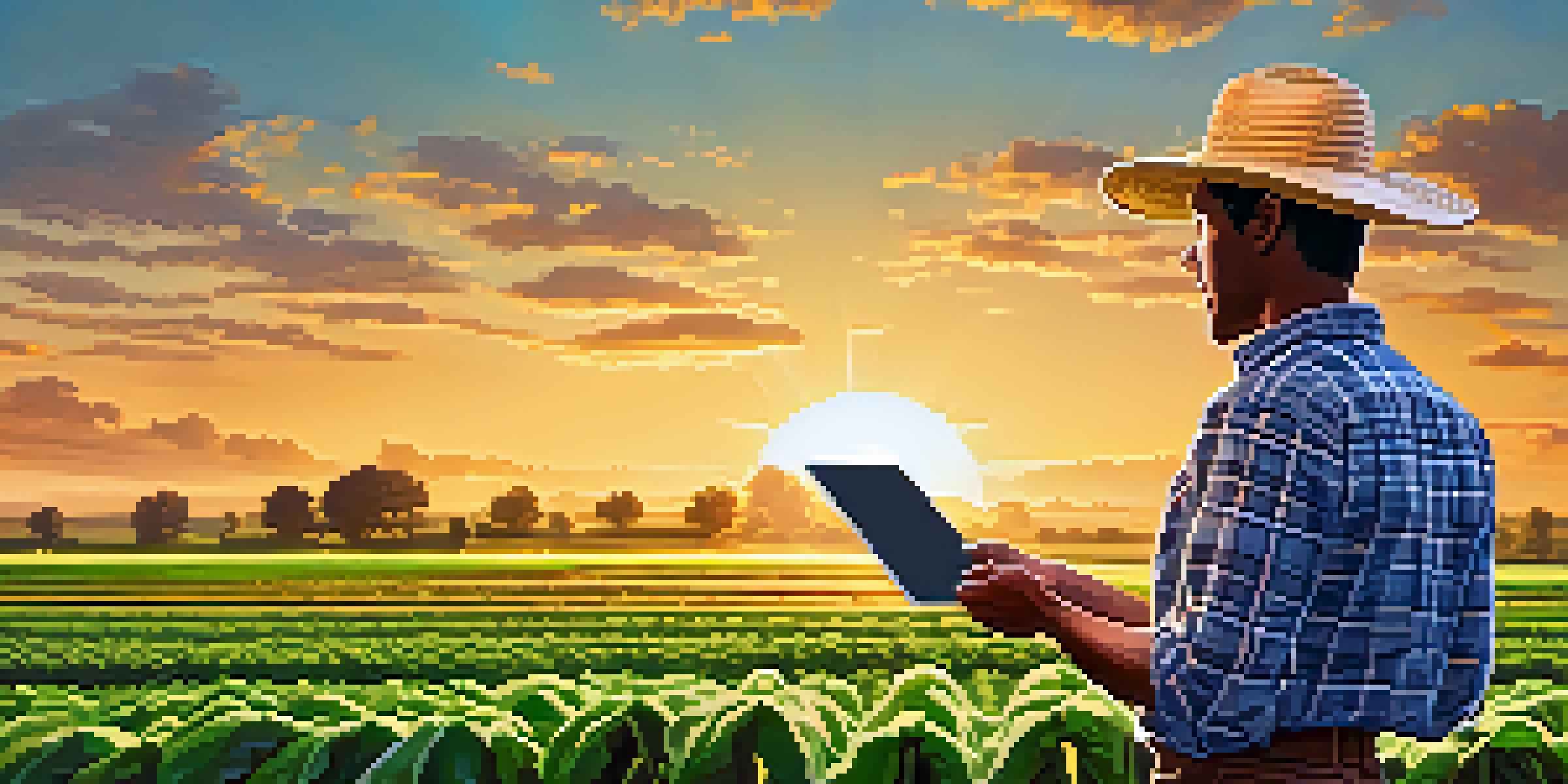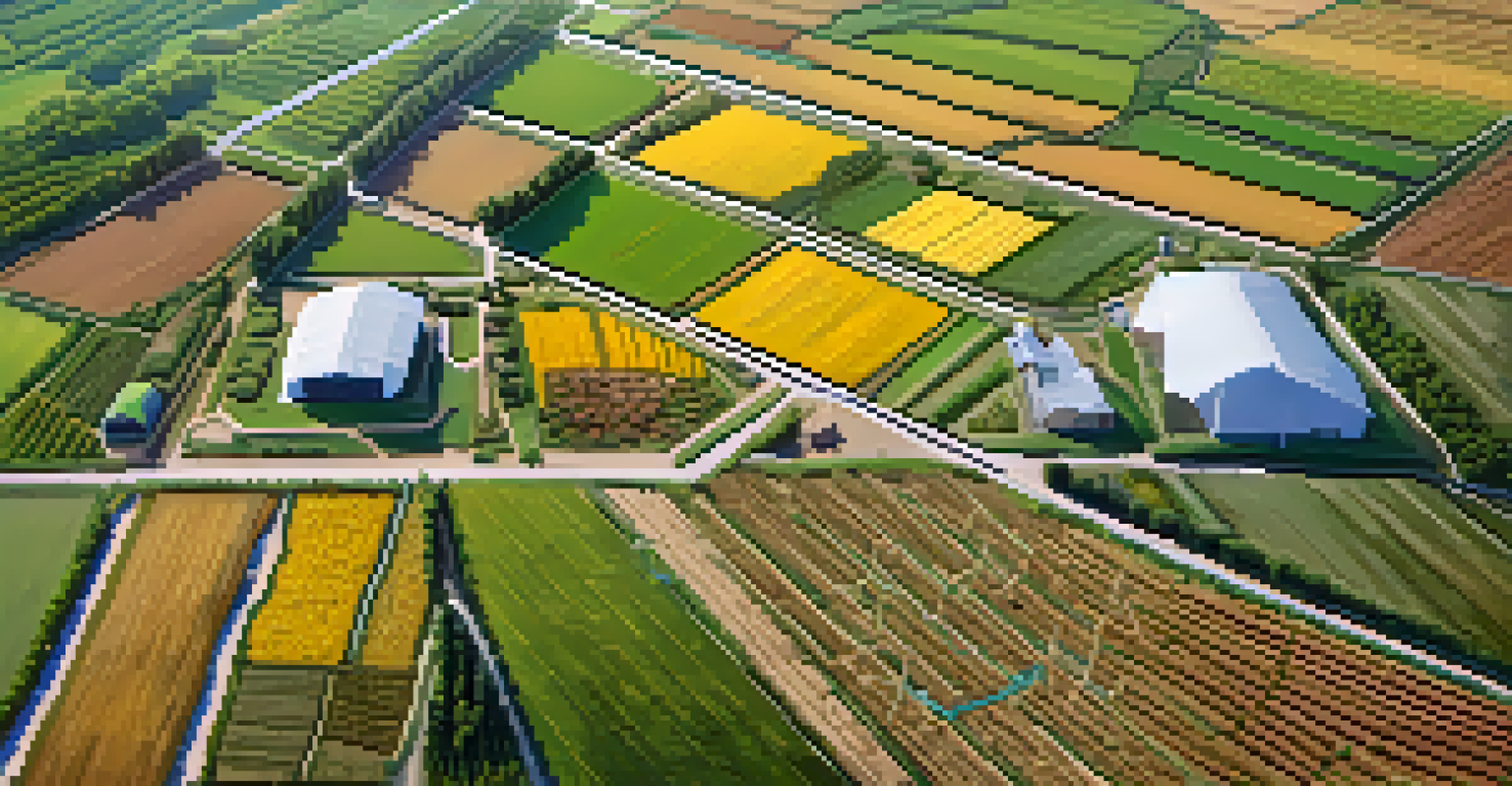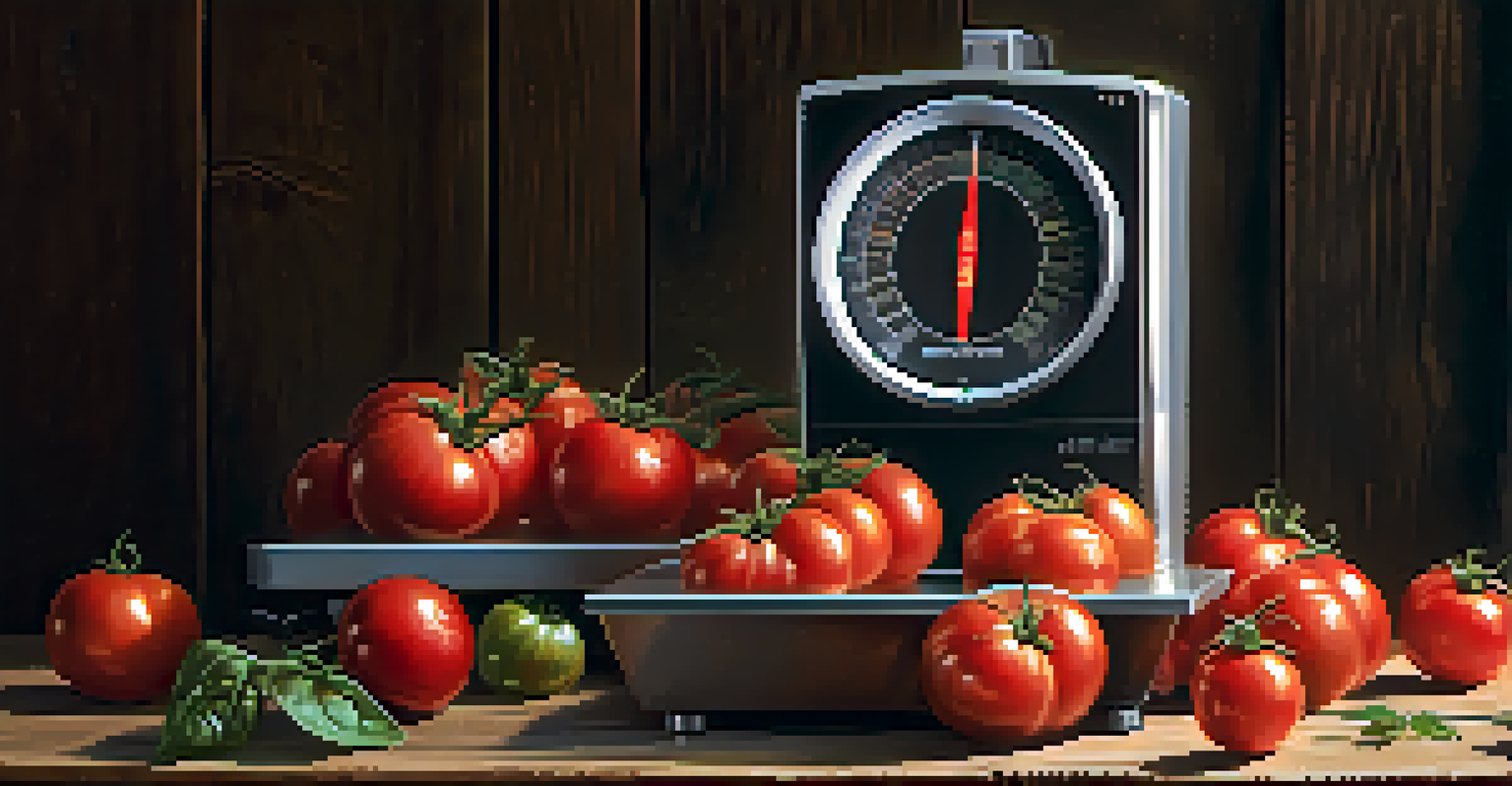Blockchain in Agriculture: Enhancing Sustainability Practices

Understanding Blockchain and Its Role in Agriculture
Blockchain is a decentralized digital ledger technology that records transactions across many computers. This ensures that the recorded transactions cannot be altered retroactively, making it transparent and secure. In agriculture, this technology can help track the journey of food from farm to table, ensuring accountability at every step.
Blockchain technology is the ultimate trust protocol. It allows each participant in the supply chain to verify the authenticity of their transactions, ensuring that trust is ingrained into the process.
By utilizing blockchain, farmers can document their practices, such as pesticide usage and crop rotation, which enhances transparency. Consumers are becoming increasingly conscious of where their food comes from, and blockchain provides the traceability they desire. This can lead to more informed purchasing decisions and improved trust between consumers and producers.
Moreover, blockchain can assist in preventing fraud in the food supply chain. With verified records, stakeholders can confidently trace products back to their origins, which is crucial during food safety investigations. This level of clarity not only benefits consumers but also empowers farmers to showcase their commitment to sustainable practices.
Enhancing Supply Chain Transparency with Blockchain
One of the standout features of blockchain is its ability to create a transparent supply chain. Each transaction recorded on the blockchain is visible to all authorized participants, creating a shared view of the entire supply process. This transparency allows stakeholders to monitor compliance with sustainability standards easily.

For instance, if a consumer wants to know the environmental impact of their avocado, they can trace its entire journey. From the farm’s sustainable practices to the transportation methods used, blockchain holds all the data. This capability not only enhances consumer trust but also encourages producers to adopt more sustainable practices.
Blockchain Enhances Food Traceability
Blockchain technology provides a transparent way to track the journey of food from farm to table, improving accountability and consumer trust.
Additionally, transparency helps identify inefficiencies in the supply chain. By analyzing this information, farmers and distributors can optimize processes, reduce waste, and lower costs. This ultimately leads to a more sustainable agricultural system that benefits both the environment and the economy.
Empowering Farmers through Smart Contracts
Smart contracts are self-executing contracts with the terms of the agreement directly written into code. In agriculture, these contracts can automate processes such as payment for goods delivered, reducing the need for intermediaries. This can empower farmers by ensuring they get paid promptly after fulfilling their contractual obligations.
The future of agriculture is not just about growing crops; it's about growing trust, sustainability, and transparency, and blockchain is a key enabler of that future.
For example, a farmer could set up a smart contract that triggers payment once the shipment of organic tomatoes is confirmed. This eliminates delays often associated with traditional payment methods and enhances cash flow. Farmers can reinvest those funds quickly, contributing to their overall business sustainability.
Moreover, smart contracts can also facilitate fair pricing by automatically adjusting based on market conditions. This means farmers can receive a fair price for their produce, incentivizing them to maintain sustainable practices. By leveraging this technology, farmers gain more control over their livelihoods.
Reducing Waste and Improving Efficiency
Blockchain technology can significantly reduce waste in agriculture, a critical issue as food waste continues to rise globally. By providing real-time data on inventory and demand, farmers can make informed decisions about planting and harvesting. This leads to better resource allocation and reduced surplus.
For instance, if a farmer knows that a certain crop is in high demand, they can adjust their planting schedule accordingly. This not only maximizes their yield but also minimizes the chances of crops going unsold and wasted. Efficient use of resources aligns with sustainability goals, making agriculture more eco-friendly.
Smart Contracts Empower Farmers
By automating transactions through smart contracts, farmers can receive timely payments and adjust pricing based on market conditions, enhancing their financial stability.
Additionally, blockchain can help monitor the freshness of produce during transportation. By tracking temperature and humidity, stakeholders can ensure that food is stored under optimal conditions, reducing spoilage. This leads to a more sustainable supply chain, benefiting both the planet and consumers.
Boosting Access to Sustainability Certifications
Sustainability certifications can be challenging for farmers to obtain due to the complex and often opaque verification processes. Blockchain simplifies this by providing a clear, auditable trail of sustainable practices. This can make it easier for farmers to demonstrate compliance with certification standards.
For example, a farmer who follows organic practices can document their methods on the blockchain. When it comes time for certification, they can easily provide verifiable evidence of their practices. This not only speeds up the certification process but also encourages more farmers to adopt sustainable practices.
Having these certifications can also open up new market opportunities. Consumers are willing to pay a premium for sustainably sourced products, and being able to prove compliance through blockchain can attract more buyers. This creates a win-win situation for both farmers and environmentally conscious consumers.
Improving Risk Management in Agriculture
Agriculture is inherently risky due to factors like weather, pests, and market volatility. Blockchain can help farmers manage these risks more effectively by providing access to real-time data and analytics. With better information, they can make proactive decisions to safeguard their crops and investments.
For instance, if a drought is forecasted, farmers can use blockchain data to assess the impact on their yields and decide whether to invest in irrigation systems. By having access to accurate and timely information, they can minimize losses and adapt more quickly to changing conditions. This agility is essential for maintaining sustainability.
Sustainability Certifications Simplified
Blockchain streamlines the verification process for sustainability certifications, making it easier for farmers to prove compliance and access new markets.
Furthermore, blockchain can facilitate crop insurance by providing reliable data to insurers. This can lead to fairer pricing and faster claims processing when disasters occur. By mitigating risks, farmers can focus on sustainable practices without the constant worry of financial instability.
Future Prospects of Blockchain in Sustainable Agriculture
The potential of blockchain in agriculture is just beginning to unfold, and its future looks promising. As technology continues to evolve, we can expect even more innovative applications that further enhance sustainability. From automated farm management systems to advanced traceability solutions, the possibilities are endless.
Moreover, as more stakeholders in agriculture adopt blockchain, the entire industry can benefit from a collective push towards sustainability. This can lead to improved practices, better resource management, and ultimately, a healthier planet. The collaboration between farmers, consumers, and technology providers can foster a more resilient agricultural system.

In summary, blockchain holds the key to unlocking a more sustainable future for agriculture. By enhancing transparency, empowering farmers, and reducing waste, this technology can lead the way toward a more sustainable and efficient food system. The journey is just beginning, and the impact of blockchain could be revolutionary for agriculture.